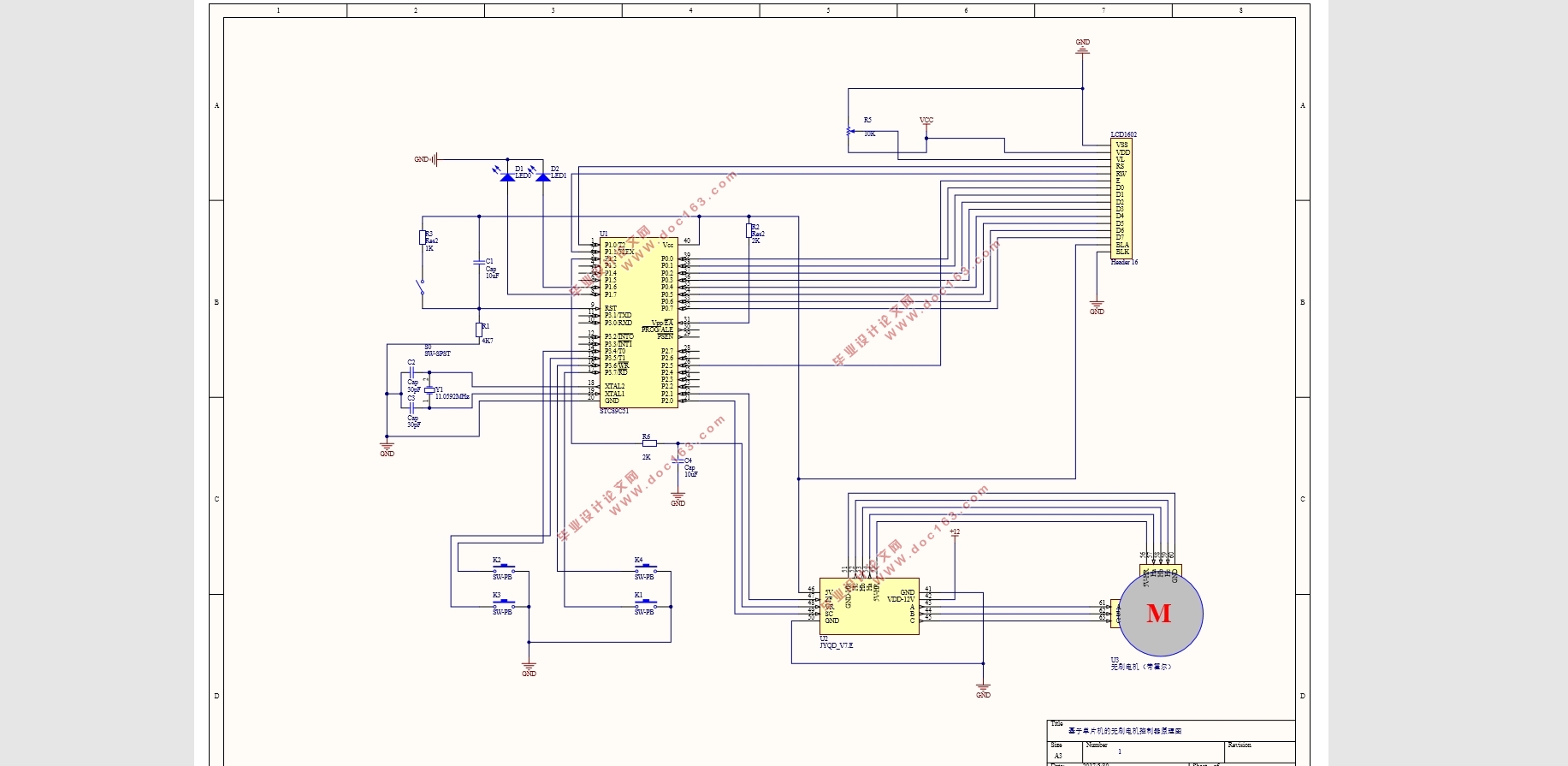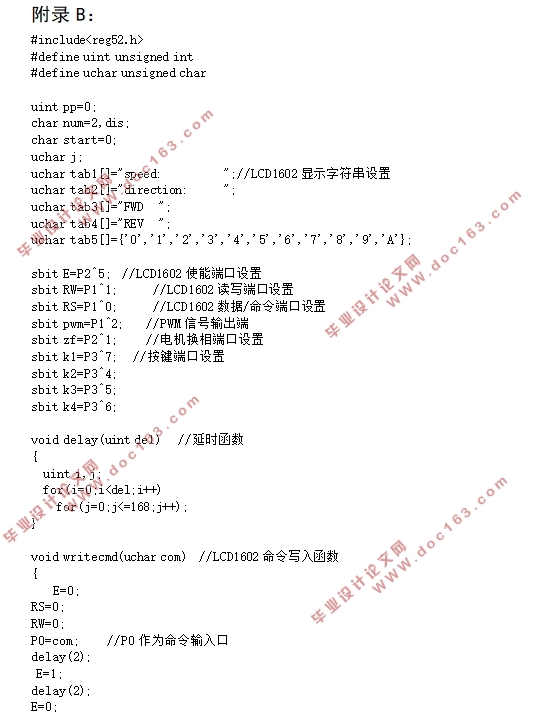基于单片机的无刷电机控制器设计(电路原理图,程序代码)

基于单片机的无刷电机控制器设计(电路原理图,程序代码)(任务书,开题报告,外文翻译,论文11000字,电路原理图,程序代码)
摘要
无刷直流电机和有刷直流电机在原理上是基本相同的。从上个世纪40年代以来,有刷直流电机凭借其优秀的转矩控制性能,长期占据着运动控制领域的主导地位,但是有刷电机的机械电刷一直是电机的致命弱点。为了消除电流电机中机械电刷的不良影响,因而诞生了无刷电机。本毕业设计主要是应用AT89C51单片机及其相关电路设计出驱动电路来保障电机的正常运行。本控制器系统由独立按键控制单片机输出电机控制信号,PWM调速技术控制电机速度大小,LCD1602显示电机当前状态,驱动电路可以保障电机平稳运行。单片机控制无刷电机可以实现电机运行自动化,以及远距离控制,可以在很多工业场合得到运用。
关键字:PWM,无刷电机,AT89C51,LCD1602
ABSTRACT
Brushless DC motors and brushless DC motors are basically the same in principle.Since the 1940s,the Brush DC motors occupy the dominant position in the field of motion control with its excellent torque control performance for a long time. But thr Brush motors mechanical brush has been a fatal weakness of the motor.In order to eliminate the adverse effects of the mechanical brush in the current motors, the brushless motors was born.The graduation design is mainly the application of AT89C51 microcontroller and its related circuit design drive circuit to protect the normal operation of the motors.The controller system controls the single-chip output motor control signalby the independent buttons. The technology of PWM is to control the motor speed. LCD1602 shows the current state of the motor. The drive circuit can protect the motor running smoothly. The control of Brushless motors by Single-chip can automate motor operation as well as remote control, and it also can be used in many industrial applications. [资料来源:http://doc163.com]
Keywords:PWM ,Brushless Motor,AT89C51, LCD1602
[资料来源:Doc163.com]



目录
摘要 I
ABSTRACT II
第1章绪论 1
1.1 无刷直流电机的背景 1
1.2无刷电机的的国内外研究现状 1
1.3无刷直流电机的构成 1
1.4无刷直流电机工作原理 2
第2章无刷电机控制器的设计 4
2.1无刷电机控制器的设计方案概述 4
2.2无刷电机控制系统的组成 5
2.3脉宽调制变速技术(PWM变速) 5
第3章无刷电机硬件设计 7
3.1 AT89C51单片机结构介绍 7
3.2 AT89C51单片机定时器介绍 10
3.2.1方式寄存器TMOD 10
3.2.2控制寄存器TCON 11
3.3 JY01A芯片介绍 12
3.4 LCD1602显示屏介绍 14
3.5无刷电机控制系统硬件电路设计 15
3.5.1单片机最小系统电路 15
3.5.2单片机与独立按键连接电路 16
3.5.3系统显示电路 17
3.5.4电机驱动电路 18
3.5.5 电压转换电路 18
第4章无刷电机软件设计 20
4.1 控制器软件设计总述 20 [来源:http://Doc163.com]
4.2程序流程图 20
第5章方案测试 23
5.1方案整体测试 23
5.2 电路改进方法 24
第6章总结 26
参考文献 27
致谢 28
[资料来源:www.doc163.com]
上一篇:基于单片机的多伺服控制系统的设计
